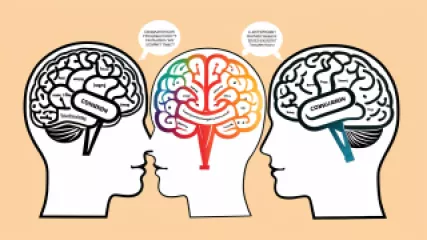Hello, I'm Skyler Carter!
At 52 years young, I bring a passion and deep commitment to helping you navigate the complexities of life. With three years of dedicated experience, I am honored to support you on your journey toward personal growth and emotional well-being.
Are you feeling overwhelmed by anger or struggling with managing expectations? Perhaps you're seeking clarity in your gender identity or finding it hard to combat imposter syndrome? Whether it's dealing with self-harm, enhancing social skills, or developing emotional agility, I'm here to provide a compassionate and safe space for you.
In our sessions, we'll explore topics such as:
- Personal Growth: Let's unlock your potential and foster a deeper understanding of yourself.
- Anger Management: Together we'll find effective strategies to control and channel your anger constructively.
- Gender Identity: Providing a supportive environment to explore and understand your true self.
- Self-Harm: Compassionate guidance to help you overcome self-destructive behaviors.
- Social Skills Training: Building confidence and improving your interactions with others.
- Digital Nomad Psychology: Addressing the unique challenges faced by those living a nomadic lifestyle.
- Imposter Syndrome: Overcoming feelings of inadequacy and embracing your achievements.
- Cognitive Distortion Types: Identifying and challenging unhealthy thought patterns.
- Psychological Safety at Work: Creating a supportive work environment where you can thrive.
- Managing Expectations: Balancing personal and professional demands to reduce stress.
- Psychology of Apologies: Understanding the power of apologies and fostering forgiveness.
- Developing Emotional Agility: Enhancing your ability to adapt and respond to life's challenges.
- Handling Holiday Stress: Strategies to manage the pressures and emotional strain of the holiday season.
I believe that everyone has the capacity for change and growth, and I am committed to walking alongside you every step of the way. My approach is tailored to meet your individual needs, ensuring that you feel heard, understood, and empowered.
Together, we will cultivate daily gratitude practices that can transform your perspective and enhance your overall well-being. By addressing cognitive distortions, we can shift negative thinking patterns and promote a healthier mindset.
If you are ready to embark on a journey of self-discovery and healing, I am here to guide you with empathy, respect, and unwavering support. Let's work together to create a fulfilling and balanced life.
Reach out today—I look forward to connecting with you and supporting your journey toward becoming the best version of yourself.
Warmly,
Skyler Carter









